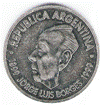Modern Languages and Literatures, Department of

Spanish Language and Literature Papers
Document Type
Article
Date of this Version
2014
Citation
Published in Neophilologus 98 (2014), pp. 433–448. doi: 10.1007/s11061-014-9383-7
Abstract
This article analyzes the representation of masculinity in Juan José Domenchina’s poetry of exile. The article argues that, during his last 20 years of life in exile (1939–1959), Domenchina shows in his poetry a contradictory masculinity. On the one hand, he reaffirms normative masculinity by rejecting pompous demonstrations of suffering, describing himself as stoic, tough, strong-willed and independent, and praising nostalgically Castilian men’s hypermasculine behavior. On the other hand, Domenchina’s poetry also testifies to his feelings of emasculation, since he calls himself an “ex-man”, shows his masculine fragmentation with the figures of the doppelganger or shadow, identifies himself with a child, and uses images of broken wings and falls to express his powerlessness. Furthermore, the poet confesses his lack of sexual prowess through the symbol of the sunset and compares his current impotence with his past full of sexual adventures. Domenchina’s poetry displays the typical contradictions of masculinity: the ideal model of assertive masculinity versus the reality of a weak masculinity in exile.
La poesía que Juan José Domenchina escribió durante los veinte años que pasó exiliado en México (1939–1959) se halla íntimamente relacionada con su concepción de masculinidad e identidad sexual. La crítica ha caracterizado a Domenchina como el poeta más nostálgico del exilio republicano español. Como indica Robin Warner, Domenchina siente que el exilio ha roto la trayectoria de su vida, despojándola de su sentido y autenticidad (1982, p. 53). Catherine Bellver apunta al respecto que desde 1939, la única preocupación del poeta madrileño fue el dolor generado por su exilio, plasmado claramente ya en los propios títulos de sus poemarios—como Destierro, Pasión de sombra, Exul umbra, Perpetuo arraigo, La sombra desterrada y El extrañ ado (1975, p. 253).
[Article is in Spanish.]
Included in
European Languages and Societies Commons, Latin American Literature Commons, Latina/o Studies Commons, Modern Literature Commons, Other Spanish and Portuguese Language and Literature Commons, Spanish Literature Commons


Comments
Copyright © 2014 Springer Science+Business Media Dordrecht. Used by permission.